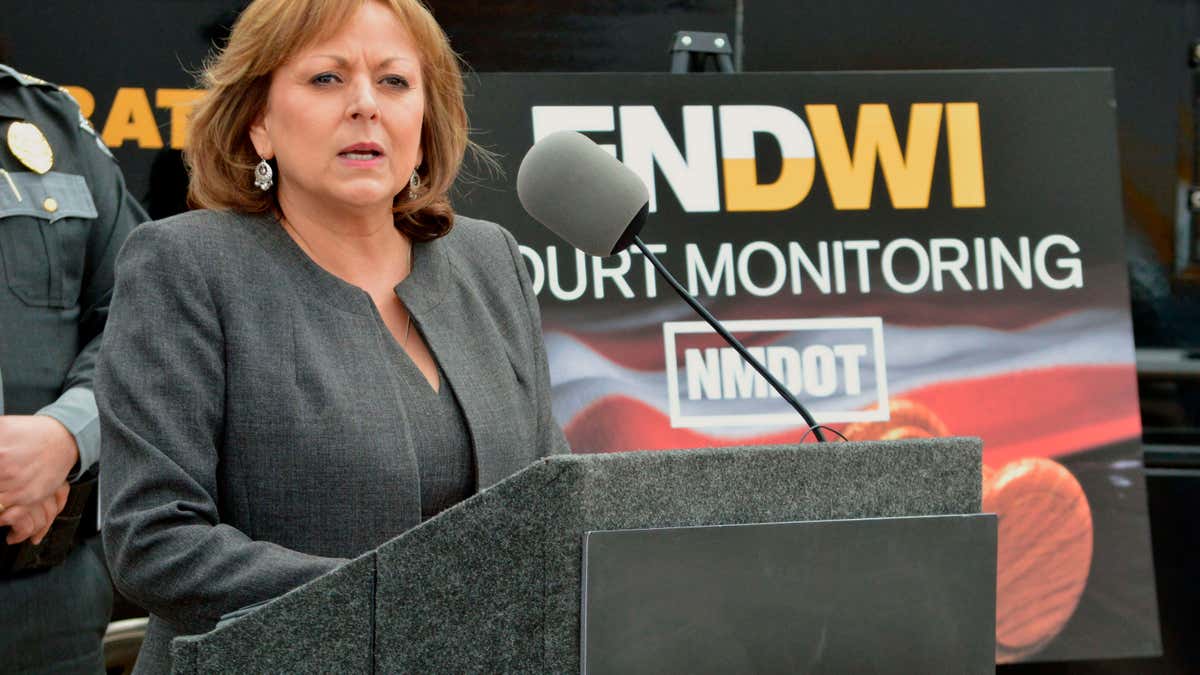
April 19, 2016: New Mexico Gov. Susana Martinez talks on a new program that will send monitors to courtrooms to watch how judges rule on cases involving suspects with multiple drunken driving convictions, during a news conference in Albuquerque, N.M. (AP)
New Mexico officials announced Tuesday it will pay Mothers Against Drunk Driving staffers to monitor court hearings and post to social media whether drunk driving offenders are let off too easy.
Republican Gov. Susana Martinez said the group will send details about sentences to state officials, who will identify repeat offenders and the judges in tweets.
The program will join others nationwide to use social media to publicize crimes by repeat offenders, but identifying judges in its social media shaming is receiving scrutiny.
Mothers Against Drunk Driving got a two-year, $800,000 contract to attend hearings in at least five New Mexico counties hit hard by drunken driving arrests and deaths. The group also offers court monitoring in other states.
The governor said the program aims to show the failure to crack down on those convicted of multiple DUI violations.
"Too many lives have been shattered by drunk drivers, and too often our justice system fails our families by going easy on the criminals," Martinez said at a news conference in Albuquerque.
New Mexico recorded a 36-year low for drunk driving deaths last year. The number of drunk-driving related deaths decreased by 28 percent.
New Mexico police departments will join departments from New England to the Southwest in the program to post jail-booking photos of suspects. Police in South Portland, Maine, post mug shots of people charged with drunken driving on its Facebook page. Officials say it is part of an effort to publicize the crime and discourage intoxicated driving.
Civil liberty groups have criticized the postings by law enforcement agencies, saying they unfairly target suspects who have yet to receive due process in court.
The American Civil Liberties Union of New Mexico was reviewing the new program, spokesman Micah McCoy said.
Democratic state Rep. Antonio "Moe" Maestas called it a public relations stunt, saying it takes the focus off DUI prevention and tries to put the blame on judges and prosecutors.
"Blaming a judge for not enough conviction rates is like blaming (a baseball) umpire for not enough strikeouts," said Maestas, a defense lawyer who represents clients charged in drunken driving cases and has worked as a prosecutor.
He called the monitoring program "unethical" and said it puts pressure on judges for harsher sentencings regardless of the facts.
The Associated Press contributed to this report.









































